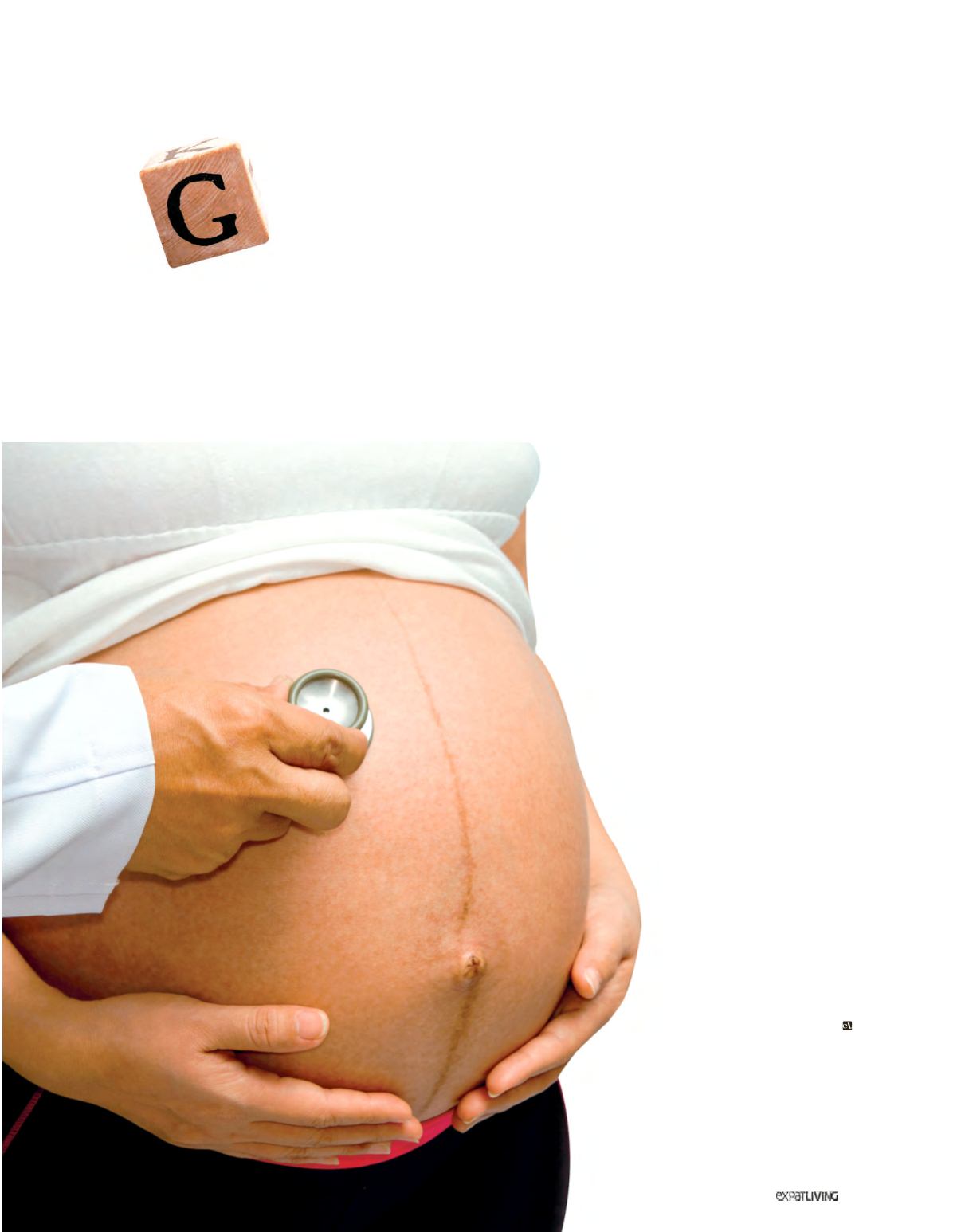

FAMILY HEALTH
299
October14
IS FOR
GESTATIONAL
DIABETES
A diagnosis of gestational diabetes mellitus (GDM) is
one of the
last
things a pregnant woman wants to hear,
and it affects a surprising 18 percent of pregnancies.
Fortunately, says endocrinologist DR FOO JOO PIN, the
outcome for both mother and child can be good, as long
as the mother works closely with her endocrinologist
to achieve and maintain good glucose control. Early
diagnosis and active intervention are key!
What is GDM and what causes it?
GDM is defined as any degree of glucose
intolerance that either starts or is first
recognised during pregnancy. It happens
because pregnancy-related hormonal
changes cause the body to develop
resistance to insulin, causing blood sugar
levels to rise. If the body is unable to
produce more insulin to overcome the
resistance, the resistance will progressively
worsen over the course of the pregnancy.
How is it picked up?
This is a silent disorder that can only be
detected via an oral glucose tolerance test.
Your gynaecologist may recommend you to
do the screening test, on the basis of your risk
factors for diabetes. That said, many women
who develop gestational diabetes have no
evident risk factors. In fact, US authorities
have recommended that all pregnant women
be screened for gestational diabetes.
What are the risks tomother and baby?
Left untreated, in can result in serious
complications. GDM in early pregnancy
can cause birth deformities in major organs
such as the heart and central nervous
system, and a higher risk of miscarriage. It
also causes excessive growth of the baby,
increasing the risk of birth trauma.
Who might be more susceptible
to GDM?
If you’re overweight prior to becoming
pregnant, or have a history of pre-diabetes,
or a family history of diabetes, or previously
gave birth to a big baby or a stillborn
baby, your chances are higher.
How is it treated?
Treating GDM involves dietary and
lifestyle intervention. Very often,
though, insulin is required to control
the blood sugars to optimal levels.
Many women have a fear of injecting
insulin, but they shouldn’t – modern
insulin therapy can be really easy,
convenient and pain-free nowadays.
Specialist Endocrine Clinic – for
Diabetes, Thyroid and Hormones
#04-03 Camden Medical Centre
1 Orchard Boulevard
6735 4066 | specialistendocrine.com



















